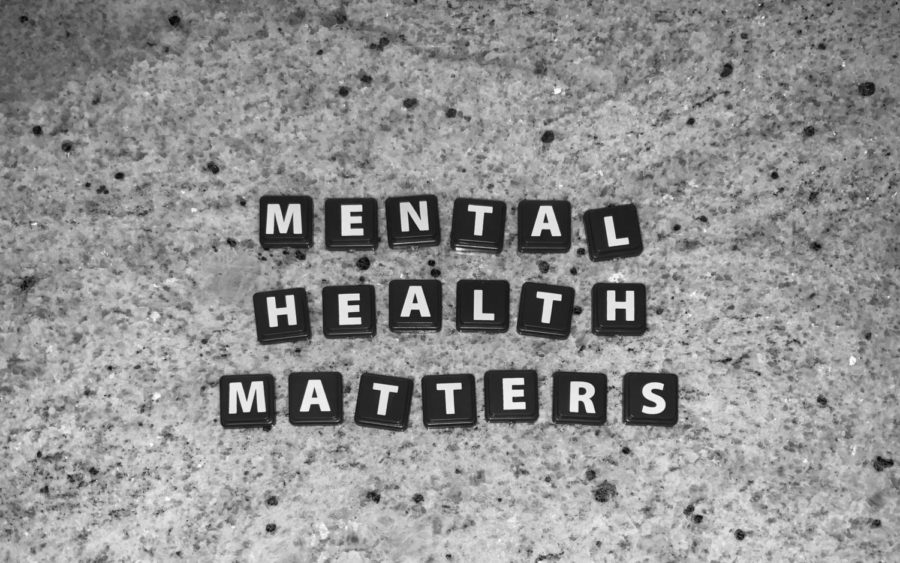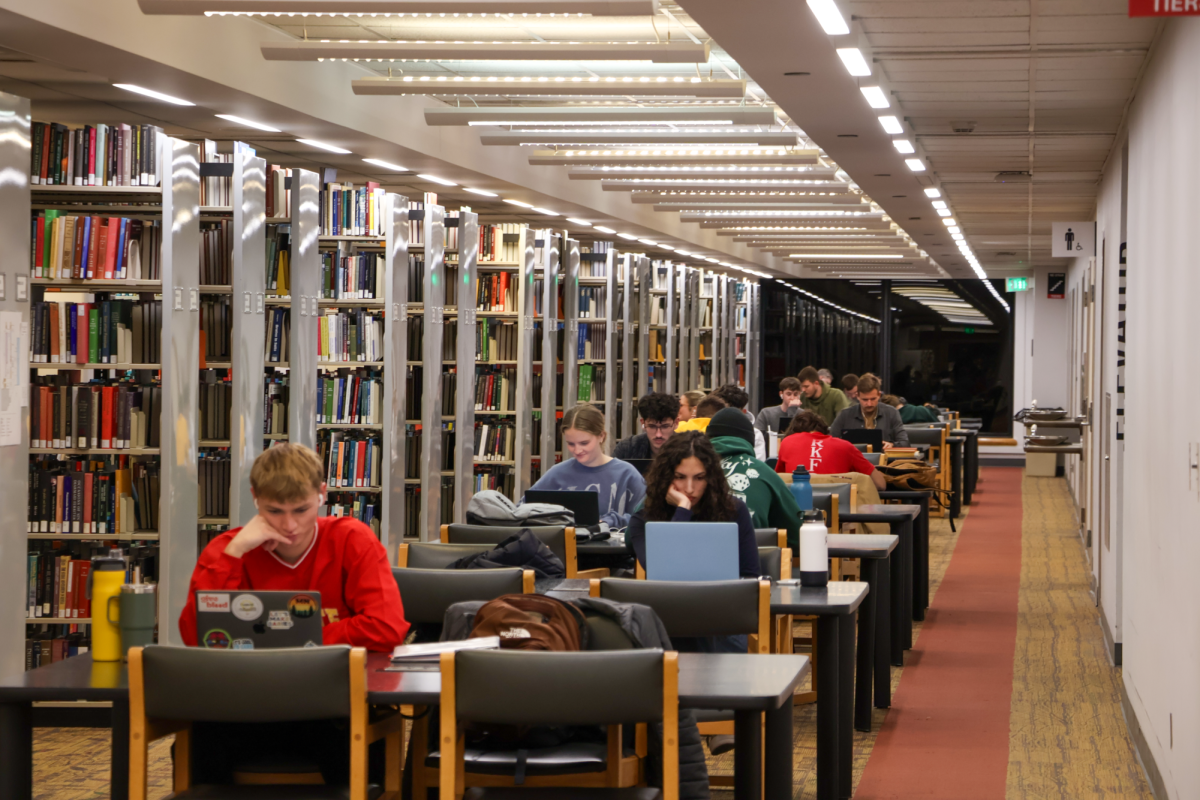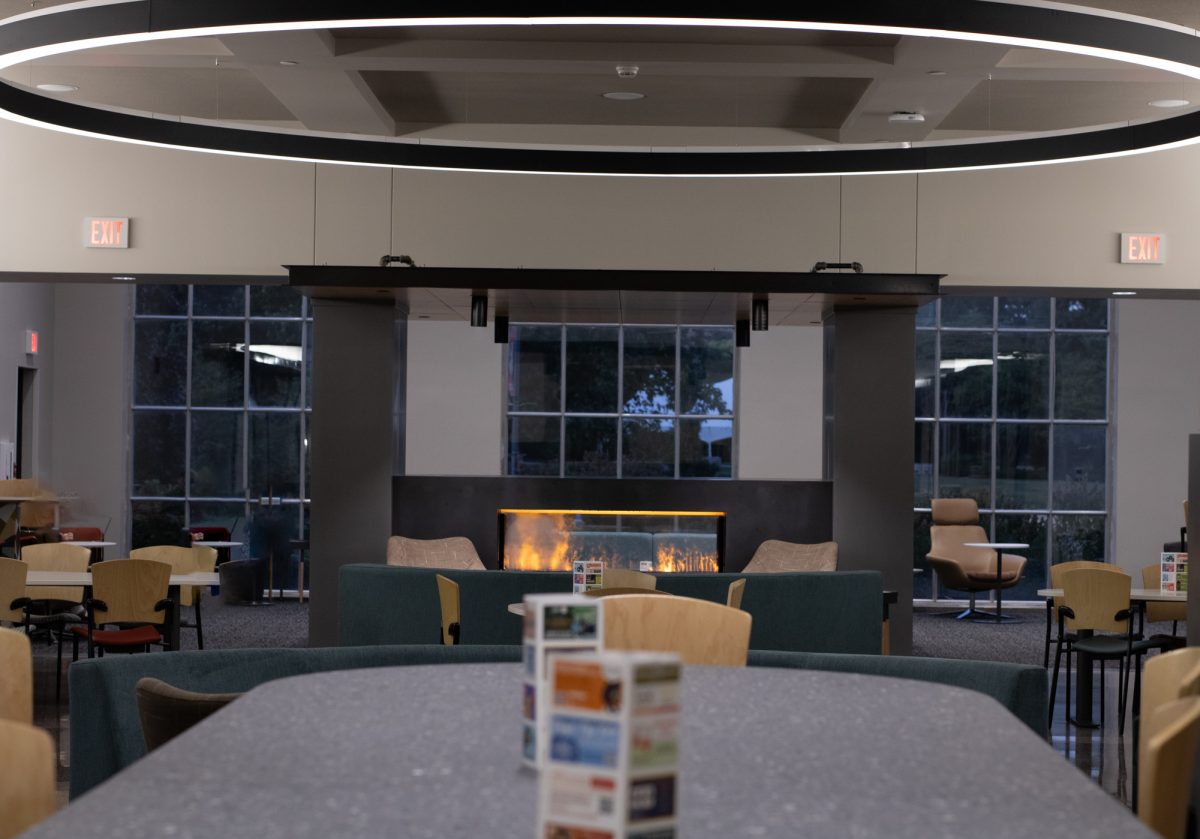The college experience of late-night study sessions and partying takes a toll on mental health, academic success and mood, according to experts at Iowa State.
Carrie Giese, the health promotion coordinator for violence prevention and community engagement within Student Wellness, emphasized sleep plays a vital role in many daily functions, particularly mental health.
“Sleep does have a strong interconnection, or interrelationship, with mental health,” Giese said. “There are several things, if you will, that happen with your brain connections and nervous system when you sleep, and when those things are out of cycle or disrupted, then they have a negative impact on mental health.”
Giese said sleep is often overlooked.
“I think it’s underrated and it’s one of those things that you may take for granted until you don’t get it,” Giese said.
According to Giese, having good mental health does not always mean being happy, but instead entails managing various emotions.
“Mental health is just as important as physical health,” Giese said. “We all pay attention when we have the cold or the flu and take care of ourselves. The same thing goes for mental health.”
Giese stressed the importance of paying attention when feeling anxious or depressed.
“I think mental health often has a perception of being happy all the time. That’s not the case,” Giese said. “Mental health is feeling the emotions that come up in any situation that we’re in and moving through them. You can be a very mentally healthy person and feel sad one day. That’s part of mental health.”
Alison Phillips, professor of psychology at Iowa State, said sleep plays a critical factor in human behavior as a whole.
“Mood is affected, and self-control and executive functioning, which includes attention and memory retrieval, so it’s all affected,” Phillips said. “Sleep is when we solidify memories, so the thought is that to do well on an exam, you would have had to sleep well and solidify those memories.”
However, Phillips said most of these effects are cumulative and can play an important role in things like academic performance.
“The better the sleep duration, quality and consistency, the better the academic performance,” Phillips said. “Sleep over a month or more that really predicts academic performance, versus the sleep someone gets the night before an exam.”
Zlatan Križan, a professor of psychology specializing in sleep and social behavior, said a loss of sleep affects the body over time.
“Sleeping five hours each night after a few days is like not sleeping one night,” Križan said.
Young adults, particularly teenagers and college students, should be getting seven to nine hours of sleep each night on average.
Despite these recommendations from experts, Phillips said that, in reality, many students get less sleep than average.
“College students should be getting, on average, between seven to nine hours of sleep and are getting, on average, about six hours of sleep,” she said.
According to Phillips, the lack of sleep could be for a variety of reasons, including more stress and environmental factors.
“Sleep troubles are more prevalent in college because of greater amounts of stress, work and social activities,” Phillips said. “Just more demands on time, but also things in the environment like having a roommate and living near a bunch of other people. So sleep is just generally worse.”
To improve sleep quality and mental health, Phillips recommended implementing exercise into one’s routine.
“Exercise is medicine. It treats mental health problems,” Phillips said. “Most people start exercising to lose weight or become fit, and that takes time. But what I have new exercisers focus on is that they will sleep better on the first night.”
Phillips said exercise promotes an improved mood, academic performance and sleep.
“Sedentary time, on average, is very high for college students so they’re not sleeping enough, but they’re also not moving enough,” Phillips said.
Giese, Phillips and Križan all noted that it is important to have a routine, even if a consistent bedtime is not possible.
“Ideally, [a routine] is as close as you can get to having a ‘bedtime,’ but even if you can’t because of your work schedule or class schedule, there are things that you can have a routine before going to bed every night to program your mind and body to go to sleep,” Giese said, suggesting limiting cell phone use in the 20 minutes before bed and putting on pajamas.
Giese said she recognized many individuals struggle with sleep issues.
“I want people to know that one, they are not alone, and two, there are people that can work with them to try different strategies,” Giese said.
For students struggling with sleep issues, mental health concerns or academic-related difficulties, Giese said there are a variety of resources available on campus, including Therapy Assistance Online also known as TAO, a resource free to Iowa State students.
Giese also mentioned the Sleep Well Program, wellbeing coaching and the Thielen Student Health Center as ways students can reach out for help to either talk one-on-one with a professional or take a self-guided course. Students can visit Cyclone Support or Cyclone Health to find more campus wellbeing resources.














